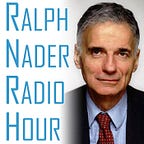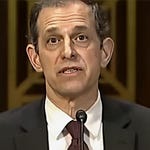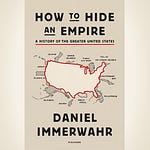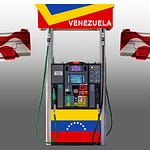Ralph welcomes Harvard history professor, Alex Keyssar, scholar of voting rights and author of “Why Do We Still Have The Electoral College?” to discuss the battle over the Electoral College and the role white supremacy played in conceiving and perpetuating it. Then, we welcome back Steve Silberstein, board member of “National Popular Vote,” to update us on the progress that movement is making on the interstate compact where states would promise to give their electoral votes to the winner of the national popular vote.
Alexander Keyssar is professor of History and Social Policy at Harvard’s Kennedy School of Government and is the author of The Right to Vote: The Contested History of Democracy in the United States. His latest book is Why Do We Still Have the Electoral College?.
What [the Electoral College] does is that it gives a state electoral votes (and thus power in presidential elections) in proportion to its population– not in proportion to the number of people who show up at the polls. What that means, among other things, is that if a state disenfranchises a significant percentage of its population, it is not in any way punished in presidential elections. It still gets the same number of electoral votes.
Alexander Keyssar, author of Why Do We Still Have the Electoral College?
[In the 1960s and 1970s] there was a kind of ideological commitment to democracy. And we had… decisions by the Supreme Court about districting that emphasized the principle of “one person, one vote.” And the Court decisions tried to say: well, you know, that doesn’t have to apply to presidential elections. but once you decide that that principle is sacrosanct, it’s pretty hard to then turn around and say: well, it shouldn’t apply to the most important election.
Alexander Keyssar, author of Why Do We Still Have the Electoral College?
So in “the world’s greatest democracy”– I put that in quotes– a minority mechanism in the Senate (called the filibuster) preserved the minority mechanism in our constitutional tradition (the electoral college). So, basically, in this country we have minority rule entrenched.
Ralph Nader
I thought that the National Popular Vote Interstate Compact was a good way to build political support for Electoral College reform. But that it wasn’t, in itself, the solution to the problem.
Alexander Keyssar, author of Why Do We Still Have the Electoral College?
Stephen M. Silberstein founded and served as the first President of Innovative Interfaces Inc., a leading supplier of computer software for the automation of college and city libraries. Mr. Silberstein sold his interest in the company in 2001 and now devotes his time to philanthropic and civic matters, one of which is sitting on the Board of Directors of National Popular Vote.
The pressure [to oppose the National Popular Vote Interstate Compact] now comes from people who, somehow, think that the Founding Fathers did not intend that the person who gets the most votes should become president. They somehow think that a couple of states should make the choice. So that’s where the pressure comes from. There’s a certain fear that if the person who got the most votes won, then bad things would happen.
Stephen Silberstein, National Popular Vote
There’s nothing more unstable than the present system, as we know, where everything depends on a couple of votes in a couple of states.
Stephen Silberstein, National Popular Vote
The last major presidential candidate who went to all 50 states was Richard Nixon. Now, they’re lucky if they go to 38 states.
Ralph Nader
Once [the National Popular Vote Interstate Compact] takes effect, just like giving women the right to vote… people will realize it’s the right way to do it and the system will continue in place.
Stephen Silberstein, National Popular Vote














